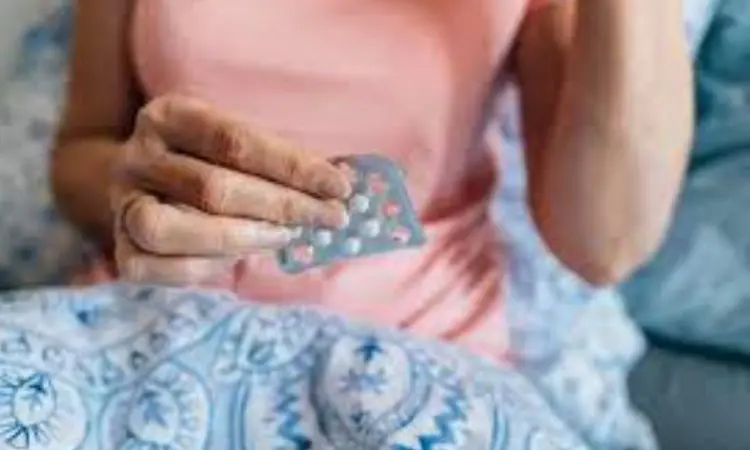- Home
- Medical news & Guidelines
- Anesthesiology
- Cardiology and CTVS
- Critical Care
- Dentistry
- Dermatology
- Diabetes and Endocrinology
- ENT
- Gastroenterology
- Medicine
- Nephrology
- Neurology
- Obstretics-Gynaecology
- Oncology
- Ophthalmology
- Orthopaedics
- Pediatrics-Neonatology
- Psychiatry
- Pulmonology
- Radiology
- Surgery
- Urology
- Laboratory Medicine
- Diet
- Nursing
- Paramedical
- Physiotherapy
- Health news
- Fact Check
- Bone Health Fact Check
- Brain Health Fact Check
- Cancer Related Fact Check
- Child Care Fact Check
- Dental and oral health fact check
- Diabetes and metabolic health fact check
- Diet and Nutrition Fact Check
- Eye and ENT Care Fact Check
- Fitness fact check
- Gut health fact check
- Heart health fact check
- Kidney health fact check
- Medical education fact check
- Men's health fact check
- Respiratory fact check
- Skin and hair care fact check
- Vaccine and Immunization fact check
- Women's health fact check
- AYUSH
- State News
- Andaman and Nicobar Islands
- Andhra Pradesh
- Arunachal Pradesh
- Assam
- Bihar
- Chandigarh
- Chattisgarh
- Dadra and Nagar Haveli
- Daman and Diu
- Delhi
- Goa
- Gujarat
- Haryana
- Himachal Pradesh
- Jammu & Kashmir
- Jharkhand
- Karnataka
- Kerala
- Ladakh
- Lakshadweep
- Madhya Pradesh
- Maharashtra
- Manipur
- Meghalaya
- Mizoram
- Nagaland
- Odisha
- Puducherry
- Punjab
- Rajasthan
- Sikkim
- Tamil Nadu
- Telangana
- Tripura
- Uttar Pradesh
- Uttrakhand
- West Bengal
- Medical Education
- Industry
Study finds increased risk of dementia in women using estrogen-only therapy

Denmark: A recent article published as a research letter in the Journal of the American Medical Association (JAMA) revealed an association between estrogen-only use and an increased dementia rate in women exposed to near menopause.
The study confirms findings from the large randomized clinical trial (RCT) but in a more contemporary population reflecting actual use.
An RCT of women who had undergone hysterectomy, aged 65 years and older from 1996 to 1999, revealed an increased dementia risk with conjugated equine estrogen. In contemporary clinical settings, these findings are less relevant where hormone therapy for vasomotor symptoms is initiated near menopause and short term.
Nelsan Pourhadi, Copenhagen University Hospital–Rigshospitalet, Copenhagen, Denmark, and colleagues assessed the association between estrogen-only use and dementia.
For this purpose, they performed a nested case-control study of women with hysterectomy, aged 50 to 60 years in 2000, and without previous dementia, oophorectomy, or contraindications for menopausal hormone therapy using national Danish registers. Women were followed from 2000 until 2018, emigration, death, or an exclusion criteria.
The study's outcome was the first-time diagnosis of all-cause dementia or prescription redemption of antidementia medication, the latter allowing identification of patients treated in primary care.
Estrogen-only use was evaluated through prescriptions from 1995 until 2 years before the index date to diminish potential reverse causation bias. Based on individual-level data on amount, time, route, and type of estrogen-only therapy, cumulative duration of use (≤5 years; >5 years) and mean daily dose (<2 mg; 2-<3 mg; ≥3 mg) were computed.
The associations between the cumulative duration of estrogen-only therapy and between the dose and route of estradiol and incident dementia were assessed using conditional logistic regression.
Based on the study, the researchers reported the following findings:
- 29 104 women with hysterectomy were followed for 500,000 person-years. Median age at hysterectomy was 43 years (IQR, 39-47 years).
- During follow-up, 541 women developed dementia (Alzheimer's disease, 92) and were matched to 2705 controls; 13.9% were identified only by the use of antidementia medication. The median age at diagnosis was 70 years.
- Estrogen-only users constituted 53.2% of cases and 45.0% of controls; users aged 55 years or younger constituted 15.6% and 12.3%, respectively. The median age at treatment initiation was 53 years.
- Median treatment duration among users was 5.4 years for cases and 5.1 years for controls.
- Estradiol use composed 94% of person-time with estrogen-only therapy, and of this, 81% was oral and 19% transdermal.
- Estrogen-only versus never use was associated with increased dementia rate (hazard ratio [HR], 1.55); HR was 1.49 for 5 years of use or less and 1.62 for greater than 5 years of use. Increasing the daily estradiol dose yielded increasing HRs.
- Oral estradiol HR was 1.62; and transdermal, 1.39.
- The association persisted in women using estrogen-only until a maximum of age 55 years (HR, 1.58). Alzheimer's disease HR was 1.79.
"There is a need for studies to ascertain whether findings represent a causal link between estrogen-only use and dementia risk or predisposition among women needing therapy," the researchers concluded.
Reference:
Pourhadi N, Mørch LS, Holm EA, Torp-Pedersen C, Meaidi A. Dementia in Women Using Estrogen-Only Therapy. JAMA. 2024;331(2):160–162. doi:10.1001/jama.2023.23784
Dr Kamal Kant Kohli-MBBS, DTCD- a chest specialist with more than 30 years of practice and a flair for writing clinical articles, Dr Kamal Kant Kohli joined Medical Dialogues as a Chief Editor of Medical News. Besides writing articles, as an editor, he proofreads and verifies all the medical content published on Medical Dialogues including those coming from journals, studies,medical conferences,guidelines etc. Email: drkohli@medicaldialogues.in. Contact no. 011-43720751


